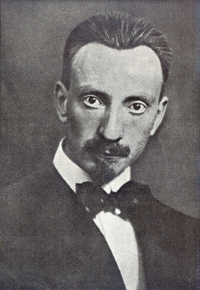A Quote by Kenneth Clark
Only the bad artists of the nineteenth century were frightened by the invention of photography; the good ones all welcomed it and used it.
Quote Topics
Related Quotes
Only the bad artists of the nineteenth century were frightened by the invention of photography; the good ones all welcomed it and used it. Degas liked it not only because it provided an accurate record, but because the snapshot showed him a means of escape from the classical rules of design. Through it he learnt to make a composition without the use of formal symmetry.
The invention of photography has dealt a mortal blow to the old modes of expression, in painting as well as in poetry, where automatic writing, which appeared at the end of the nineteenth century, is a true photography of thought. Since a blind instrument now assured artists of achieving the aim they had set themselves up to that time, they now aspired, not without recklessness, to break with the imitation of appearances.
Given that the nineteenth century was the century of Socialism, of Liberalism, and of Democracy, it does not necessarily follow that the twentieth century must also be a century of Socialism, Liberalism and Democracy: political doctrines pass, but humanity remains, and it may rather be expected that this will be a century of authority ... a century of Fascism. For if the nineteenth century was a century of individualism it may be expected that this will be the century of collectivism and hence the century of the State.
The nineteenth century was the last moment in history when a relatively educated layperson could follow what was going on in the world of science and invention to a wide degree. Also, there were no "professionals". This was a time when amateur explorers, naturalists and enthusiasts were are still making major contributions to progress.
To know whether photography is or is not an art matters little. What is important is to distinguish between good and bad photography. By good is meant that photography which accepts all the limitations inherent in photographic technique and takes advantage of the possibilities and characteristics the medium offers. By bad photography is mean that which is done, one may say, with a kind of inferiority complex, with no appreciation of what photography itself offers: but on the contrary, recurring to all sorts of imitations.
The Bible must be the invention of either good men or angels, bad men or devils, or of God. It could not be the invention of good men or angels, for they neither would or could make a book, and tell lies all the time they were writing it, saying, 'Thus saith the Lord,' when it was their own invention. It could not be the invention of bad men or devils, for they would not make a book which commands all duty, forbids all sin, and condemns their souls to hell for all eternity. Therefore, I draw this conclusion, that the Bible must be given by divine inspiration.


































